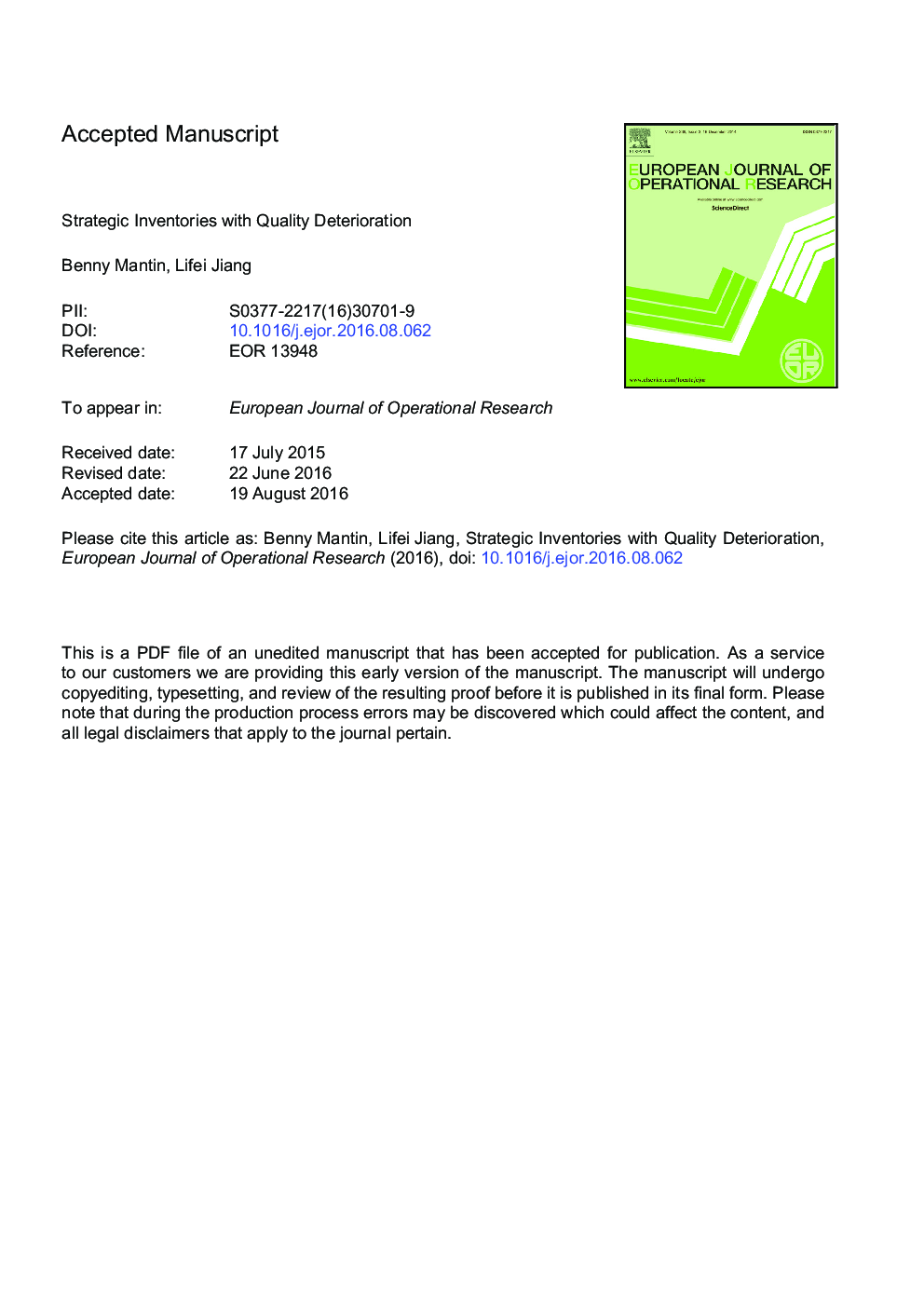| Article ID | Journal | Published Year | Pages | File Type |
|---|---|---|---|---|
| 4959958 | European Journal of Operational Research | 2017 | 33 Pages |
Abstract
Retailers may carry inventories strategically in order to induce the suppliers to lower the wholesale price in their future negotiations. Earlier literature on strategic inventories assumed that units carried from one period over to the next were perfect substitutes to newly procured ones. However, in practice, when inventories are carried their quality is subject to deterioration over time. Thus, inventoried units become vertically differentiated from newer units. Such quality deterioration affects the supplier-retailer interaction: first, it significantly limits the retailer's ability to carry strategic inventories (only when both their deterioration and the cost of holding them is not too high). This occurs as the deterioration enables the supplier to set a wholesale price such that the retailer is discouraged from holding strategic inventories. Yet, the supplier is worse off in the presence of product deterioration; second, despite the carrying of strategic inventories, it may result with a wholesale price, as well as a selling price, that increase, rather than decrease, over time; third, some product deterioration may be beneficial for the supply chain. We further characterize differences that occur as a consequence of the consideration inventory deterioration.
Related Topics
Physical Sciences and Engineering
Computer Science
Computer Science (General)
Authors
Benny Mantin, Lifei Jiang,
